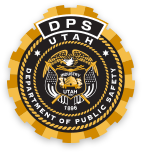Changes in Administration
Henry Hooper Blood was the Governor of Utah from 1933 to 1941. During the 1936 election, Herbert Brown Maw ran against Blood, but lost the nomination as a result of opposition by Democratic party leaders to his open advocacy of pro-labor and pension legislation. Maw countered by sponsoring legislation that replaced the convention system of party nomination with the direct primary. This enabled Maw to circumvent the Democratic Party machine in the state and to receive the nomination, which resulted in his 1940 gubernatorial victory. Superintendent Groo, Captain Fryer, and Lieutenant Hillis had all supported Blood in the 1936 election. It was difficult for them not to support Blood, since he was the incumbent and their boss. When Maw won the 1940 election, he remembered his defeat four years earlier.
One of Governor Maw’s campaign promises was to completely reorganize state government. Based upon Maws recommendations, the 1941 legislature took the Utah Highway Patrol out of the State Road Department and made it a separate department of state government. The superintendent was then directly responsible to the Governor.
The ranks of the UHP stood at 51 sworn officers during 1940. In 1941, the largest hiring to date brought that number to 69 officers. By April 1941, the Utah Highway Patrol had 74 employees as follows: 1 Superintendent, 1 Captain, 2 Lieutenants, 8 Sergeants, 1 Staff Sergeant, 56 Patrolmen, 4 clerks and 1 secretary. Superintendent Groo was working diligently on the regional conference of the International Association of Chiefs of Police to be held at the Hotel Utah in June 1941. The main topic of the conference was expediting military movements with the least possible interruption of civilian traffic. The main topic outside of the conference was the political winds of Governor Maw’s administration.
Upon Maw’s gubernatorial victory and the reorganization of the Utah Highway Patrol, it was rumored that the top administration of the Utah Highway Patrol would not last long. That prediction came came true in September 1941. Lieutenant Hillis, in charge of the northern region of the state, left the Utah Highway Patrol on September 4, 1941. Governor Maw then dismissed Superintendent Groo and appointed Lieutenant Pete L. Dow, a nine year veteran of the Utah Highway Patrol, as Superintendent. Captain Fryer left the patrol on September 21, 1941. Whitney Groo, Captain Fryer, and Lieutenant Hillis had all served since the beginning of the Utah Highway Patrol. Each had served under three Governors, and they were professionals in every respect.
Perhaps Captain L. L. Fryer felt he should have been appointed Colonel, perhaps he felt that he was next to be terminated. Whatever his reasons for leaving, L. L. Fryer never returned to law enforcement. He died on June 5, 1974.
During an interview on September 21, 1993, Pete Dow told Les Langford that Governor Maw told him that he (Dow) had total control over the Utah Highway Patrol. Dow further stated that Governor Maw was saddened by Captain Fryer’s decision to leave the patrol. Governor Maw added that he had no intentions of releasing Captain Fryer.
The Salt Lake Tribune recorded the appointment of Pete Dow to Colonel by adding, “Governor Maw promised that none of the patrol members would be dismissed for political reasons and said that he planned to establish a merit system under which advancement would be made on a basis of ability and service.” Colonel Dow is remembered by those who served with him as a hard working, dedicated administrator. He was firm, but fair. He expected much from the members of the UHP. Dow told the news media, “There is no such thing as a minor violation.” This became Colonel Dow’s thrust of emphasis.
